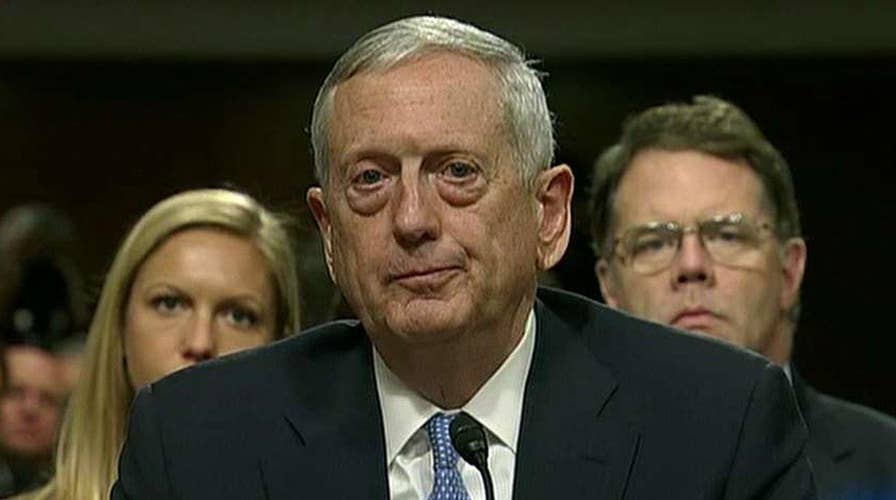There is business to be done on Inauguration Day in the United States Senate.
But it will come late in the day.
Long after the swearing-in of President-elect Trump. Hours following the helicopter departure from the Capitol of President Obama via “Executive One.” It’s designated as such because the former president is on board, having just bid farewell to the new president. And we haven’t even mentioned the special inauguration luncheon on Statuary Hall of the Capitol.
Consider the bill of fare:
Did guests prefer the J. Lohr 2013 Arroyo Vista Chardonnay paired with the Maine lobster and Gulf shrimp -- with saffron sauce and peanut crumble? Or did the Delicato Black Stallion 2012 Limited Release Napa Valley Cabernet Sauvignon go better with the Angus beef -- with dark chocolate and juniper jus and potato gratin?
The House and Senate are in fact in session Friday. The inauguration itself constitutes a Joint Session of Congress – just outside. The House gavels in Friday morning but won’t really do anything. Technically, the Senate is in too at that point (there’s a debate about whether to raise the flag over the Senate wing of the Capitol, denoting the Senate meeting). But unlike its companion body, the Senate will conduct the first business of the Trump administration sometime after 4 p.m. ET.
The question … is how much.
The Senate will focus on confirming some of the new president’s nominees. Republicans certainly have the votes to confirm many of Trump’s picks. But for now, Democrats can determine how many nominees the Senate can advance on Inauguration Day and how many they can delay.
Senate Republicans are pushing for the confirmation of seven nominees. But in reality, Trump will only get three or four on Friday. Maybe five at the most.
“Seven sounds like a good number,” said Senate Majority Whip John Cornyn, R-Texas. “Seven is the number in 2009. I would expect parity.”
Seven is magnificent for Republicans because that’s how many nominees the Senate confirmed on Obama’s inauguration day eight years ago. The Senate approved the nominees on what’s called a “voice vote,” not taking a formal tally. Those in favor simply holler “aye.” Those opposed shout “no.” The louder group prevails.
In 2009, the Senate confirmed Steven Chu as Energy secretary, Arne Duncan as Education secretary, Janet Napolitano as Homeland Security secretary, Ken Salazar as Interior secretary, Eric Shinseki as Veterans Affairs secretary, Tom Vilsack as Agriculture secretary and Peter Orszag as the director of the Office of Management and Budget (OMB).
The Senate confirmed Hillary Clinton as secretary of State the next day, 94-2 with 39 Republicans voting yea. Defense Secretary Bob Gates stayed on from the Bush administration.
At the very least, Republicans are angling to confirm Trump’s national security team Friday: Rep. Mike Pompeo, R-Kan., as CIA Director, retired Gen. James Mattis as Defense secretary and retired Gen. John Kelly as Homeland Security secretary. There’s chatter the Senate could confirm Elaine Chao, the wife of Senate Majority Leader Mitch McConnell, R-Ky., as Transportation secretary Friday. Chao’s not controversial. The Senate confirmed Chao on a voice vote as President George W. Bush’s Labor secretary in 2001.
This is an important moment for the Democrats. Democrats don’t align politically with many of the president-elect’s nominees. Cabinet confirmations are the first proxy fight on the field. Democrats must flex their muscles to build support with the left. This helps set the tone for the next two if not four years. The Democrats’ efforts to vilify the president and portray his choices in a negative light help their cause. In other words, if Trump is so good at spotting talent, why are there issues with the nominees?
“This is a swamp Cabinet full of bankers and billionaires,” proclaimed Senate Minority Leader Chuck Schumer, D-N.Y.
But doesn’t the president have the right to have as many members of his Cabinet in place as soon as possible? Schumer says “it’s not analogous” for the GOP to complain if the Senate doesn’t confirm seven nominees on inauguration day like they did for Obama. Schumer says the president’s nominees turned in their background paperwork for review in a timely fashion. He said the wealth of Trump’s picks created issues in the vetting process.
Start with Secretary of State nominee Rex Tillerson. Tillerson could even face Republican opposition. That’s a problem. Republicans hold a 52-48 advantage in the Senate (two independent senators caucus with the Democrats). If Democrats hold the line, Republicans have a narrow margin for error.
Democrats are also targeting Education Secretary nominee Betsy DeVos and EPA Administrator nominee Scott Pruitt. Democrats are worked into a lather over the nomination of Rep. Tom Price, R-Ga., as Health and Human Services secretary. That’s because of the role Price could play in dismantling ObamaCare. The OMB nominee, Rep. Mick Mulvaney, R-S.C., just coughed up more than $15,000 in delayed payroll taxes he owed to a worker at his home.
“I’m sure they’ll grab for every straw they can to delay the president-elect’s cabinet,” said Cornyn.
But Democrats can’t do much to torpedo nominations if Republicans stick together. All Democrats can do is elongate the process by a day or two and require a procedural vote to end debate on a nomination. All eyes are watching for the first Republican senator who dares to vote against one of Trump’s nominees – and the wrath they may incur.
Such a prospect could give any senator indigestion – regardless of the wine pairing they preferred or the peanut crumble.
Capitol Attitude is a weekly column written by members of the Fox News Capitol Hill team. Their articles take you inside the halls of Congress, and cover the spectrum of policy issues being introduced, debated and voted on there.





